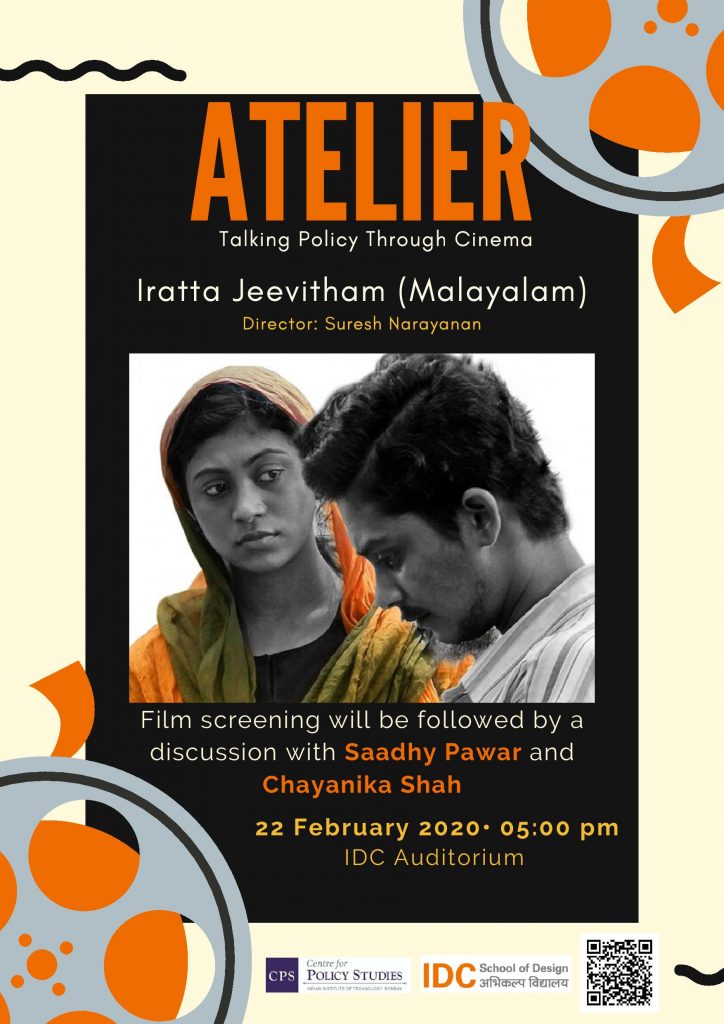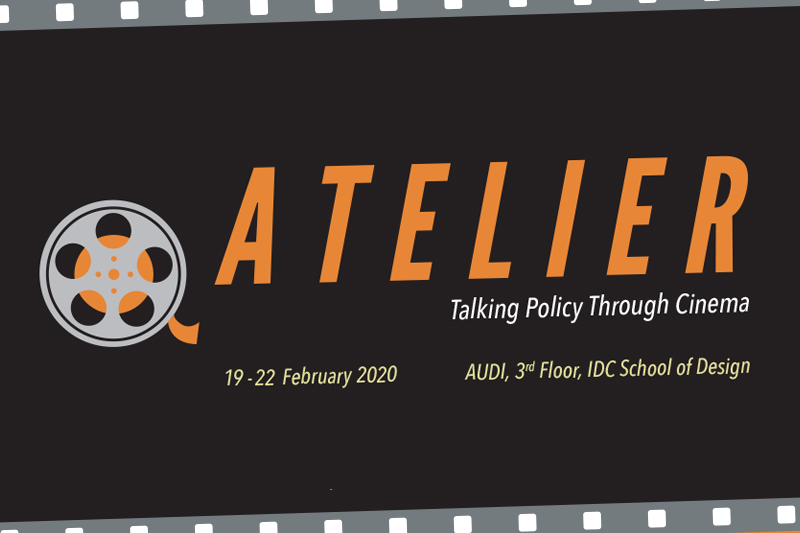CPS aims to engage with various policy issues by using different approaches. This pushes us to engage with different forms of text and information, including going beyond traditional academic resources and learning from other media and sources of knowledge. With this is mind, we have organised Atelier: Talking Policy Through Cinema, showcasing cinema from across the country. These films, a mix of documentaries, short films, and features films, explore various themes ranging from policing and caste to food politics, gender, water issues, and rural issues–CPS engages with a number of these themes in its research.
Each film will be followed by a discussion with various speakers and panelists, including P. Sainath, Fahim Irshad, and Ratna Pathak Shah. These conversations will give us the opportunity to delve deeper into the policy themes, discuss ‘alternate’ sources of knowledge, and interact with filmmakers and policy makers.
Atelier will be held between February 19 and 22, 2020. The venue for February 19 is LA001 and for February 20-22 is the IDC auditorium (2nd floor).
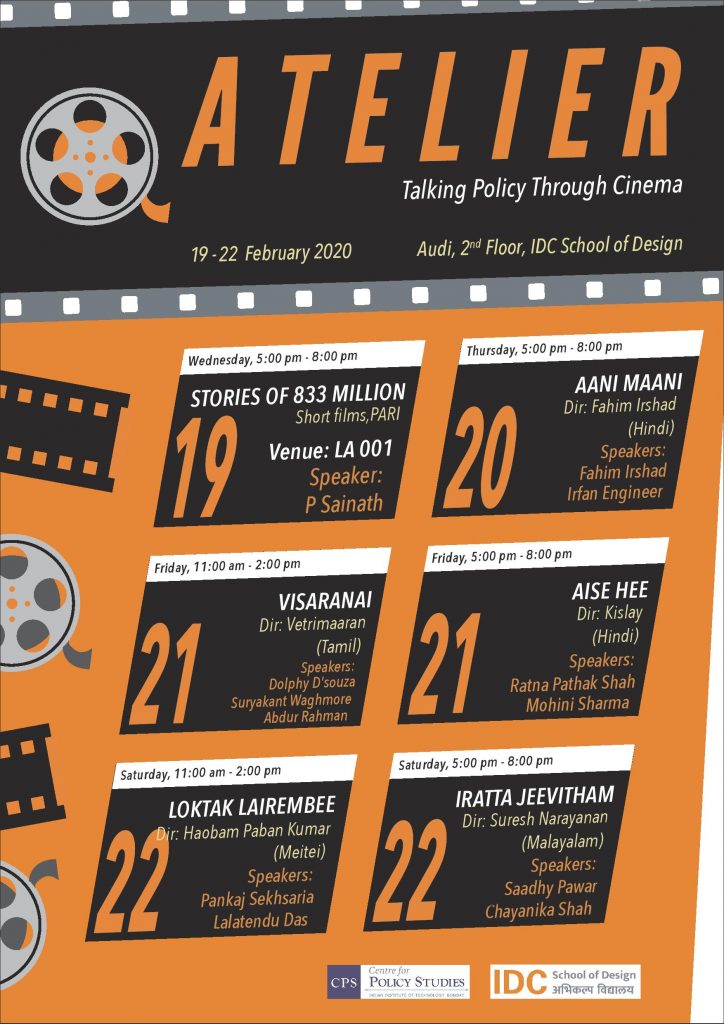
Day 1:
We open Atelier: Talking Policy Through Cinema with ‘Stories of 833 Million’, a collection of short films curated by the People’s Archive of Rural India (PARI). The films use different lenses to view rural India and its diverse inhabitants—artists, freedom fighters, environmentalists, farmers.
The films will be followed by a conversation with P. Sainath.
About the Speaker:
P. Sainath is a former journalist whose work has focused on social and economic inequality, rural affairs, poverty and the aftermath of globalization in India. He is the founder editor of the PARI (People’s Archive of Rural India), and the recipient of the Ramon Magsaysay Award, which he accepted in 2007 in the category of Journalism, Literature and Creative Communication Arts. He is the author of the landmark book “Everybody Loves a Good Drought”.
About the People’s Archive of Rural India:
PARI calls itself ‘both a living journal and an archive’. It generates and hosts reporting on the countryside that is current and contemporary, while also creating a database of already published stories, reports, videos and audios from many sources. PARI hosts and combines video, photo, audio and text archives that record the lives and livelihoods of poor and everyday Indians. PARI is also building a Resources section, which will host (in full text and not just via links), all official (and unofficial but credible) reports related to rural India.
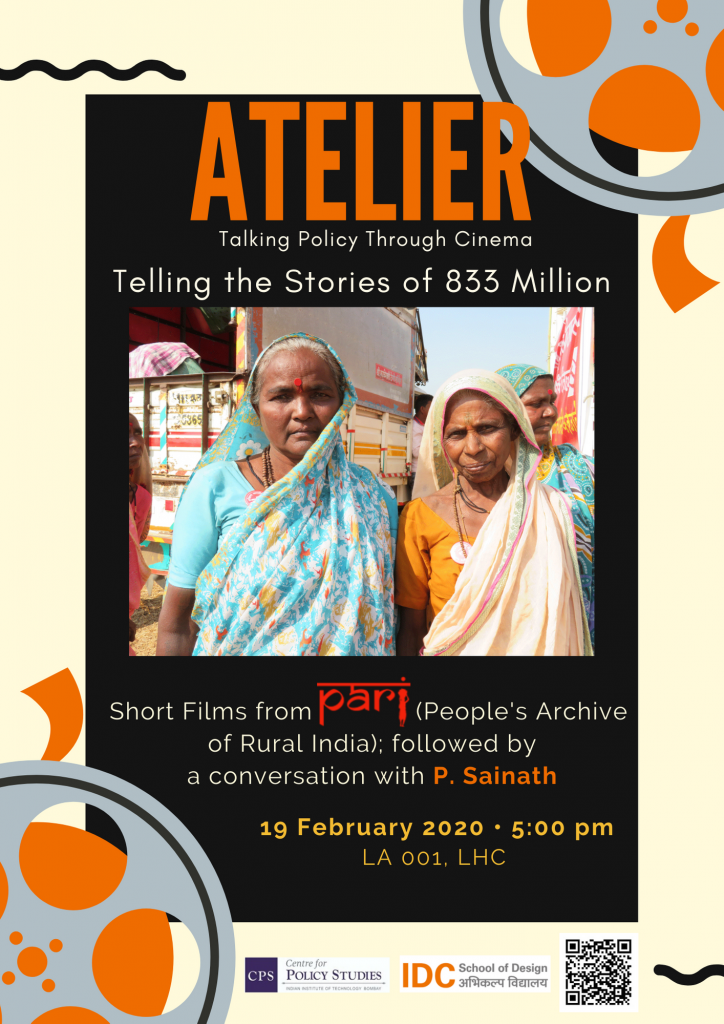
Day 2:
On Day 2, we have a screening of the film ‘Aani Mani’ (Hindi). The film explores food politics and livelihoods.
The film will be followed by a conversation with Prabir Vishnu Poruthiyil, director Fahim Irshad, and Irfan Engineer.
About the Speakers:
Prabir Vishnu Poruthiyil teaches social policy usually through the lenses of inequality, sectarianism, and ageing in developing societies at CPS. His research has appeared in Business and Society, Journal of Social Quality, Critical Discourse Studies, Economic and Political Weekly, and the Journal of Business Ethics.
Fahim Irshad completed his Masters in Mass Communication from Jamia Millia Islamia in 2011. He has written and directed Aani Maani which won Best Debut Feature Film and Best Asian Film NETPAC Award in IFFK 2019. It continues to be screened in various festivals this year. Fahim is currently writing Mirzapur Season 3 for Amazon Prime.
Irfan Engineer is the Director, Centre for Study of Society and Secularism. The organisation was set up by his father, Asghar Ali Engineer, a renowned Islamic scholar and human rights activist. Irfan is the author of several books and a well-known voice in the struggle for justice and secularism. The Centre has constituted the Dr. Asghar Ali Engineer Memorial Award to acknowledge and promote legacy of Dr. Engineer and his work in the areas of liberation theology, religious reforms in any community, communal harmony and peace, rights of women in Islam. Irfan is also the editor of a quarterly journal – Indian Journal of Secularism.
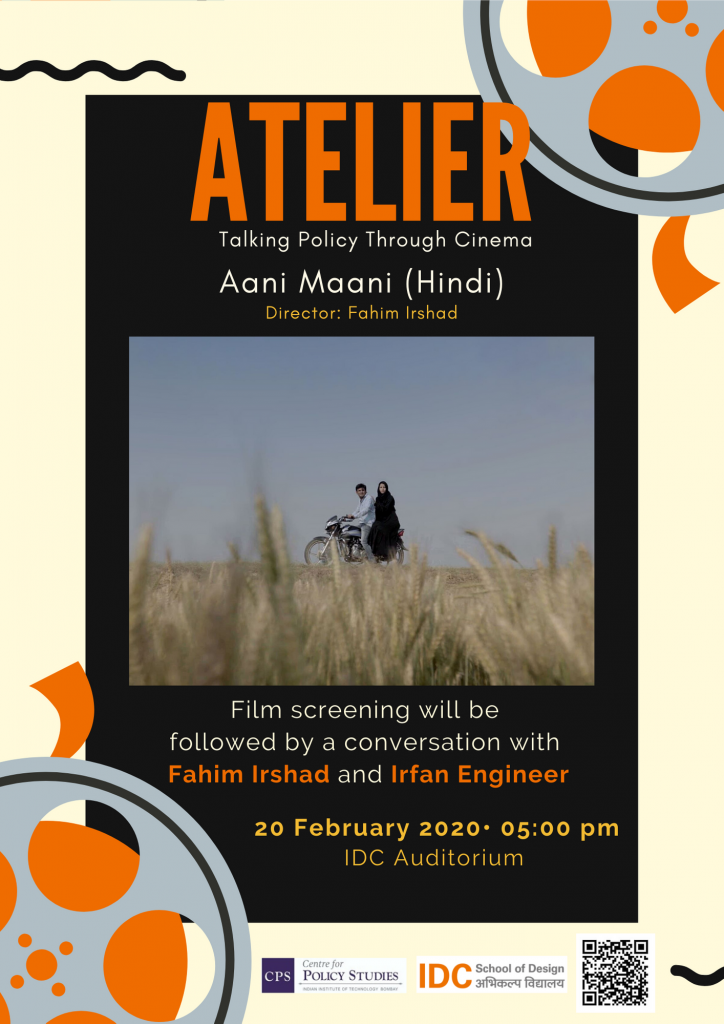
Day 3:
On Day 3, we have two screenings. In the morning session, we are screening the film ‘Visaranai’ (Tamil), which delves into issues of police brutality, caste, and migrant labour. The film will be followed by a panel discussion with Kalindi Kokal, Dolphy D’souza, Abdur Rahman and Suryakant Waghmore.
About the Speakers:
Kalindi Kokal is a Post Doctoral Fellow at the Centre for Policy Studies, IIT Bombay. Her work revolves around legal pluralism, legal anthropology, and personal law systems. She is currently engaged in ethnographic work on the everyday working of police stations in Mumbai.
Dolphy D’souza is the Project Lead of the Mumbai Commonwealth Human Rights Initiative. He is the Spokesman and former president, the Bombay Catholic Sabha, a committee member, People’s Union for Civil Liberties, and former chairman of the Bombay University Student’s Council. He is involved with the POLICE REFORMS WATCH, “a coalition of concerned citizens who have been working to catalyse demand for better policing in Maharashtra. The coalition first came together in 2013 and since then, its members have been meeting regularly to discuss the status of police reforms in the state and have held several workshops and public meetings.”
Adbur Rahman is a retired IPS officer and was the IG for the Maharashtra State Human Rights Commission. He is now a social justice activist and the author of the book Denial and Deprivation.
Suryakant Waghmore is an Associate Professor at the Humanities Department at IIT Bombay. He is a prolific researcher and writer having made deep insights on the mechanisms of caste in contemporary India. His books include Civility against Caste: Dalits Politics and Citizenship in Western India. Two forthcoming books are Towards Civility? Citizenship, Publicness and the Politics of Inclusive Democracy in India and Withering Caste in Urban Locales. More recently he has been studying the caste oppression from the perspectives of dominant groups.
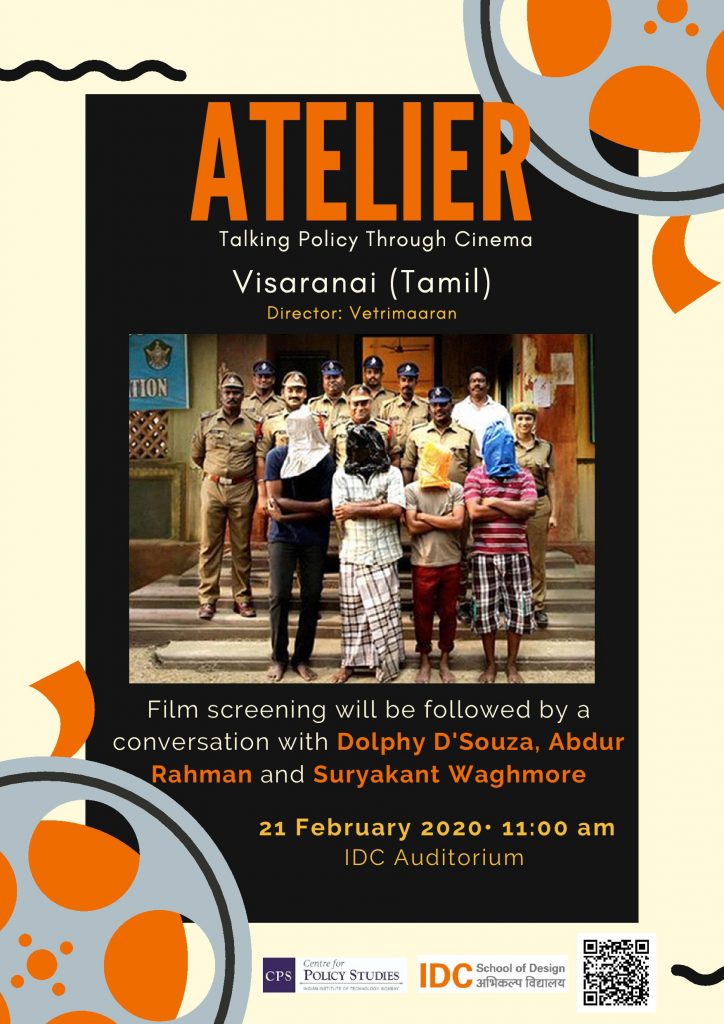
In the evening session, we are screening the film ‘Aise Hee’ (Hindi). The film follows an older woman who has recently lost her husband but discovers other aspects of life—something her family is not supportive of. The film will be followed by a conversation with Vidya Subramanian, Mohini Sharma and Ratna Pathak Shah.
About the Speakers:
Vidya Subramanian is an interdisciplinary scholar whose research interests lie at the intersection of technologies and societies. She is a Post Doctoral Fellow at the Centre for Policy Studies, IIT Bombay, where she studies the nature of the technological society we now inhabit, and the policies that have come to govern it. She is currently working on a project to investigate the policy space of the digital in India in order to unpack the categories of citizen, user, consumer, and indeed data source; and to understand how individuals navigate these identities.
Ratna Pathak Shah is an actor, director, and educator. She is a founder member of Motley, a theatre company in Mumbai, which performs plays in Hindustani and English. She also acts in films and TV shows and has directed plays for children and adults and has conducted acting training workshops with schools and community centres. Some of her most recent films include Kapoor and Sons since 1921, Lipstick under my Burkha, and Nil Battey Sannata. She was also in the Netflix series, Selection Day. Apart from film, television, and theatre, Ratna has an interest in education, and has been working with the Avehi Abacus Project since its inception. This project develops curricula for school students, and those training to be teachers and is used in public schools and colleges across the city as well as in other parts of the country.
Mohini Sharma is the lead actor of the film.
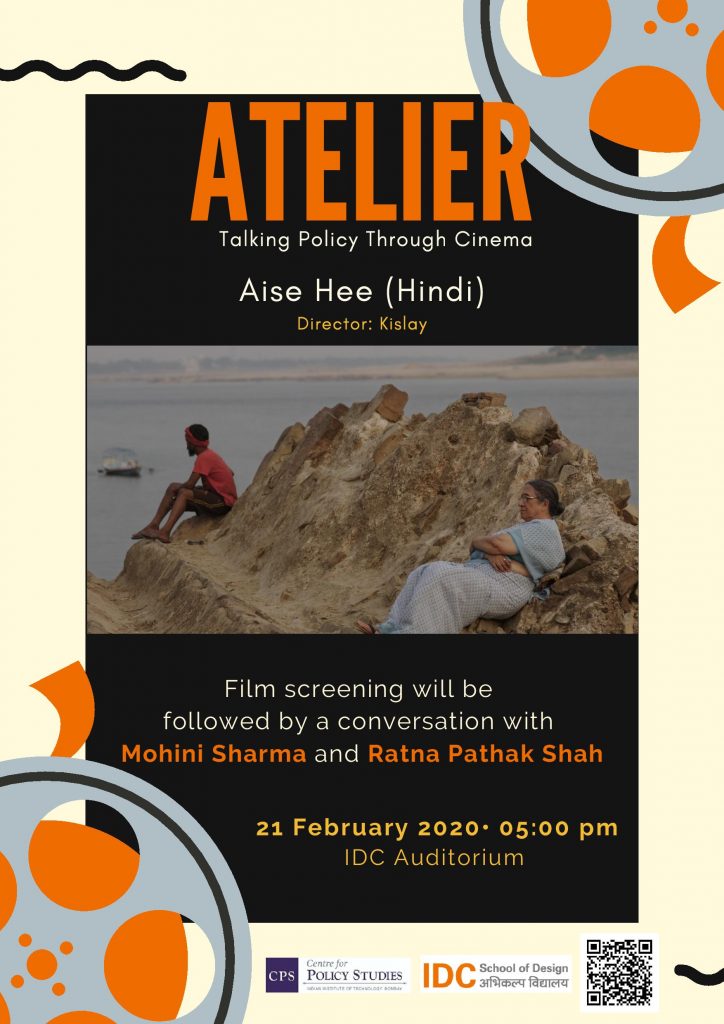
Day 4:
On the closing day, we have two film screenings. In the morning session, we are screening ‘Loktak Lairembee’ (Meitei). The film is set among fishing communities in Manipur and looks at the relationship between communities, the ecology, and the state. The film will be followed by a panel discussion by NC Narayanan, Pankaj Sekhsaria and Laltendu Keshari Das.
About the Speakers:
NC Narayanan works in the area of water policy and governance with normative concerns of sustainability and equity as pointers. He and his students have worked on issues of water governance, water conflicts, uncertainty and climate change, technology/institutional choices in urban sanitation, rural drinking water governance/reforms, scaling up technology alternatives etc. He also has two ongoing field projects working with local governments on canal rejuvenation and flood mitigation planning. He has published four books and contributed to book chapters and journals.
Pankaj Sekhsaria is Associate Professor at the Centre for Technology Alternatives for Rural Areas (CTARA), IIT Bombay. He was until recently Senior Project Scientist at the DST-Centre for Policy Research, Department of Humanities and Social Science, IIT-Delhi. His research interests lie at the intersection of science, environment, technology and society. He has a PhD in Science and Technology Studies (STS) from the Maastricht University in the Netherlands and has written extensively on issues of environment, development and wildlife conservation in India with a special focus on the Andaman and Nicobar Islands.
Lalatendu Keshari Das is a Postdoctoral Fellow, IDP in Climate Studies. Lalatendu’s work articulates three debates, the Marxist debate on capitalist development, political subjectivity, and ecology. Through this, Lalatendu tries to understand issues ranging from social movements, agrarian change, fisheries, and social and environmental justice.
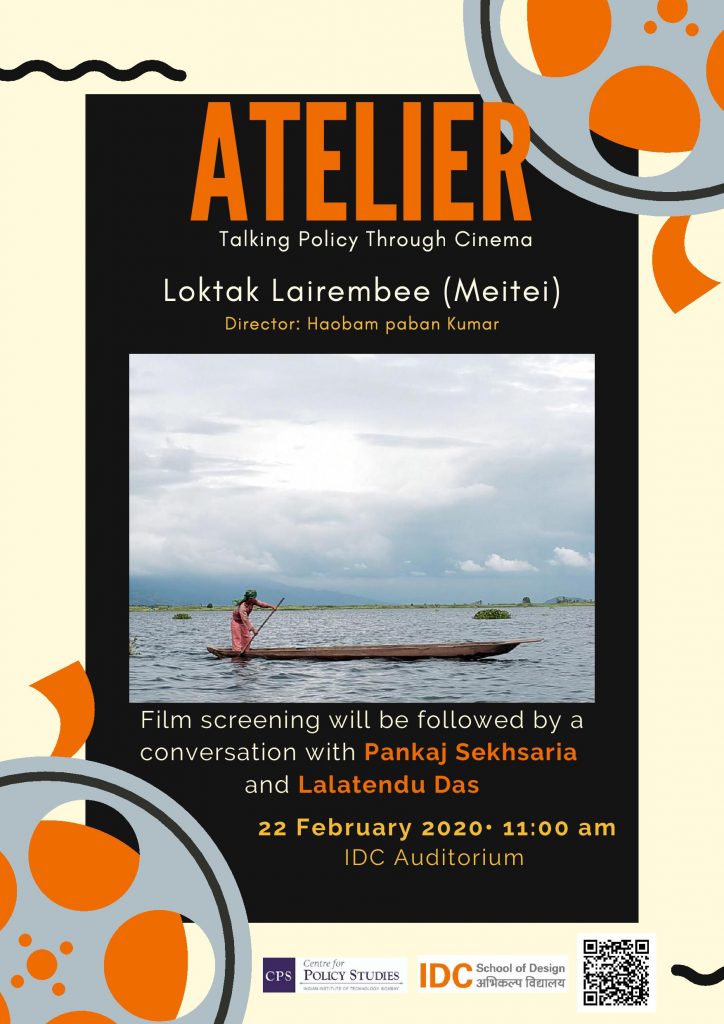
In the evening session, we are screening ‘Iratta Jeevitham’ (Malayalam). The film follows the story of a young transman and explores the nuances of gender politics, relationships, and community. The film will be followed by a conversation with Sharmila, Saadhy Pawar and Chayanika Shah.
About the Speakers:
Sharmila is Associate Professor at the Department of Humanities and Social Sciences, IIT Bombay. Her research interests include Women’s Studies, Autobiography Studies, “Crisis” in English Studies, and African American Writing.
Saadhy Pawar is an Equality Rights Activist and Peer Counsellor who handles the Mumbai Transman Group. The organisation helps with counselling parents, trying to make them understand the importance of acceptance, and provide material support to those transitioning, in terms of finding trans friendly doctors, help with paperwork, etc. The Group also tackles issues of discrimination – be it at a work place or with landlords, etc; and extend their support both in terms of advocacy and sensitisation. Saadhy loves to volunteer, talk to new people, and is learning to love himself more and more everyday.
Chayanika Shah is a feminist and queer rights activist and has been involved in women’s rights movements since the late 1970’s. She has worked with the Forum against Oppression of Women, and has been an active participant in various significant protests, campaigns, and national conferences. She joined Stree Sangam, which is currently is known as LABIA – A Queer Feminist LBT Collective. She has written many books, including ‘No Outlaws in the Gender Galaxy’, ‘Bharat Ki Chaap’, and ‘We and Our Fertility: The Politics of Technological Intervention’. She has campaigned, researched, taught and written on politics of population control, communalism, feminist studies of science, and sexuality.
